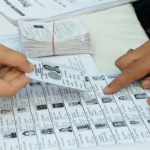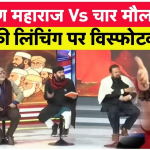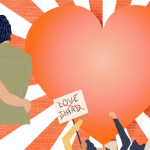In a speech she gave to a conference at the East-West Center here on challenges the media face in a “zero trust world”, Ressa said that she and her colleagues were prepared for this escalation in the Philippines government’s war on independent media and will carry on doing the work they do. “If you live in a country where the rule of law is bent to the point it’s broken, anything is possible…. So you have to be prepared.”
In her interaction with journalists attending the conference, Ressa cited The Wire as an example of what the media could do in a hostile environment. She actually began her keynote by throwing a question that she wanted someone from India to answer: “What would you do if your government gave you a shut down order?”.
I replied that this was now a real possibility given the way YouTube is so willingly implementing government takedown orders. As an audiovisual journalist, I said, I would have to find other ways of reaching audiences and one way would be to simply get on a truck with a mike, go amidst people and report and say what I would on YouTube.
The context of her question, of course, was not rhetorical: she had just learned about the shut down order on Rappler a few hours earlier. But her message to the 300 journalists from around the world who are taking part in the conference was clear: You have to be prepared for worst-case scenarios, you have to drill your worst-case scenarios, you have to put it into muscle memory… You have to have clarity, agility, sobriety… adapt and survive.”
Ressa pointed out that the arrests of activist Teesta Setalvad and fact-checker Mohammad Zubair were “shocking”, adding: “Everyone should be talking about it, everyone should be writing about this… it should get more headlines.”
Sharing her experience of incarceration, she said that when she got arrested, “people don’t want to get in the fray… partly because of self interest.” But you have to get everyone together, pull everyone together, she said.
Asked about the spread of misinformation and the adverse effect on democracy this had, Ressa saw the problem as one of information overload:
“Well, today, it’s like a firehose of falsehoods literally, right? So when you have that…individual people who just, who may have lost their jobs, who just want a simpler world where someone else can make the decisions for them…we’re seeing this. I mean, India was the first, Indonesia was the second…around 2014, there was kind of a nostalgia for a strongman leader and Prabowo [Subianto Djojohadikusumo, defence minister] in Indonesia, the former son-in-law of Suharto [former Indonesian PM] almost won, right? That was when Modi won, in 2014.”
Ressa stressed the need for media organisations to have strong ties with the communities of readers and viewers they serve. “What we need to tell our communities is that if you don’t fight for your rights now, you will lose them.” If people fight, then that makes the work of journalists easier, she added.
Appended below is the transcript of the interview
Arfa Khanum Sherwani: Hello and welcome to The Wire, I am Arfa Khanum Sherwani and I am in the beautiful state of Hawaii in the United States, where I am attending a very important conference hosted by the East West Center. Journalists from all around the world have gathered here. Today I have a very special guest with me – Nobel laureate Maria Ressa.
Maria is a Filipino-American journalist and author, and co-founder and CEO of Rappler. She’s just finished delivering her keynote address and I’m going to ask her some crucial questions on democracy, freedom of expression and how journalism can survive in the current world, more specifically from the Indian perspective – the way journalists are being attacked, the way human rights defenders are being attacked, and what we can do about this.
Maria, my first question to you would be, why do you think there is a trust deficit? Do you also attribute it to the last two years of COVID, where we were kind of a disconnected world? Do you think it added to the deficit of trust?
Maria Ressa: Well, yeah so COVID actually again, like information, was weaponised, right? That’s part of the reason you see people wearing masks or the level of distress…COVID only exacerbated the problem that was there.
We’ve been under intense information operations and that’s the beginning of it. I think people keep thinking it’s like…randomly you’re just attacked because. It’s not [that]. It’s targeted. And that’s meant to tear down. Just…I think you know this big data case study of UNESCO was very instructive. Sixty percent to tear down credibility, 40% to tear down your spirit, right? So, COVID just added another layer and this is part of the reason I would say, like, this is a once-in-a-century moment. [Chief Medical Advisor to the US President] Anthony Fauci said it was once in a century because of COVID but those very same networks of political disinformation were what was used for COVID disinformation, right?
AKS: Right. Why do you think people are so willing to believe what the dictators are saying? What the, you know, pliant media is trying to make them believe? Do you not think that people have stopped thinking on their own? Can we really blame all of this on people or you think that you know along with social media and pliant media they have been able to capture their imagination?
MR: It’s not the imagination as much as…I think people are inundated. Which is partly what social media has done, right? In the past where would you get your information? From news organisations that actually have to spend money for editorial processes and distribution.
Well, today, it’s like a firehose of falsehoods literally, right? So when you have that…individual people who just, who may have lost their jobs, who just want a simpler world where someone else can make the decisions for them…we’re seeing this. I mean, India was the first, Indonesia was the second…around 2014, there was kind of a nostalgia for a strongman leader and Prabowo [Subianto Djojohadikusumo, defence minister] in Indonesia, the former son-in-law of Suharto [former Indonesian PM] almost won, right? That was when Modi won, in 2014.
So it’s a combination of human nature, right? I think what we need to tell our communities is that if you don’t fight for your rights now, you will lose them, and you know it’ll be easier for journalists who want to keep fighting.
AKS: A very interesting thing you said was that if there is a battle for facts – if people’s minds and facts are being manipulated – then how do you trust the entire electoral mechanism and electoral system…
MR: You can’t.
AKS: We have an election coming up in less than two years and we’ve already gotten into election mode. How do you think that this manipulation of facts and manipulation of mainstream media is affecting democracies?
MR: It’s killing it, it’s killing democracy and then the people who are trying their best to stand up to power, it’s like Sisyphus and Cassandra combined, right? It’s impossible odds, but we journalists are foolish enough to try, right? So more power to you. I mean this is why we need courage.
AKS: Coming back to, you know, the media’s role. Like Rappler, The Wire is also a small organisation. We are non-profit and we are supported and sustained just by people…
MR: Your community.
AKS: …You think that this is the kind of model that can really challenge dictators, because we are nowhere. I mean, of course, we are there and there is an appetite and hunger to know more, to listen to us, to read us. There is a huge viewership and readership we have. But at the same time we can never match the size and the reach of the mainstream media.
MR: This is why we…also, you know, social media…these tech platforms, they’ve enabled this. But part of the reason I continue to engage – we’re one of two Filipino fact-checking partners – is because they have the power to do something right now and I think we need to maybe come together better and demand greater safety.
AKS: How do you do that?
MR: I don’t know, let’s figure it out.
AKS: What are the new models that you can think of?
MR: This is something we just did in three months which was way too little. It was a six-month project that we did, right? But again, like this RISJ, the Reuters Institute report to me was very damaging to the credibility we need, right?
So anyway, how do we do it? This is the fun part. All right I should have ended with the fun part. This is horrendous but it is also creation so this is where we kind of have to get our minds together, get our talents together, get our alliances together and try to create something that doesn’t exist yet. How do we do that?
AKS: Innovation?
MR: It’s partly innovation but, definitely, I think it will come from person to person, it will come from each of our areas of influence and kind of coming together. We could certainly go to Facebook all together, right? I mean this is part of in bond, for example. YouTube is the other one. I don’t know if that’s…you know, for us YouTube is number one now.
AKS: So YouTube is a problem in India right now. Like I am solely on YouTube because TV has been bought over by the powers that be.
MR: Yeah, so they’re almost…
AKS: So they’re now trying to capture YouTube, the only medium available and YouTube has so willingly given in and is giving in to the demands of the government.
MR: So that’s a story we should all be doing and frankly we can get international media concerned about that because this information is seeded. So we have a lot in common, I think. That’s the other part, I think we should strengthen that.
AKS: Maria, you emphasised on the fact that online attack is an offline attack – you said this is a real world attack. Now in India it has shifted already from online to offline.
MR: The weaponisation of the law!
AKS: I am, as a political journalist, just a tweet away or an article away from going to jail. Literally. How do you think people like me and my organisation, The Wire, should function under so much pressure? Like, real life consequences?
MR: So the first thing is you need lawyers who will help you through this. You need to tell your community what is happening. You need to make sure you’re safe. Right? Like, there has to be plan A, plan B, plan C. And you need to assess this almost on a daily basis and then you need to also reach into government.
AKS: Reach into government, as in?
MR: You need to talk to them and find out because again, treating… I think it’s a stakeholders thing, right? Because, like for me, for example, well the Marcos…What does this show about the Marcos administration? I’m not sure yet. Am I foolish for giving the Marcos administration the benefit of the doubt? Some people will say yes. I hope they don’t jail me, but you know, I mean, you gotta talk to them so that…You also have power and collectively you do have power.
AKS: Last two questions. One is on women journalists. Do you have a particular message for them because you know they’re targeted for their gender, they’re targeted for their work in general? We are a marginalised community and then this pressure that comes on us. It is just impossible sometimes to carry on the way we do.
MR: Yeah, we have to. There are now groups that are helping us. And for a lot of this we need to come together. You’re not alone, right? That’s the first message. You’re not alone. There are a lot of us who are feeling this and there’s a way to fight it. But most of the time it’s not you fighting it alone, right? Because any journalist, human rights activist or opposition politician, women politicians are getting clobbered. They can’t fight this battle on their own and that’s why we look at my three pillars – technology, journalism, community. I always go back to that Pareto principle. ‘Where do I spend most of my time?’ If we can fix the tech that will take care of the poison that keeps coming in, the virus of lies, and then we can begin to rebuild.
AKS: Last question. There are two very important people in India, one is Teesta Setalvad, a very well known human rights activist who worked with the survivors of the 2002 Gujarat riots…
MR: Yeah, I saw this…
AKS: …when Narendra Modi was the chief minister of Gujarat. And the second is a leading fact checker…
MR: I saw…
AKS: …They’re both in jail right now. What do you have to say?
MR: Shocking. I think…Indian journalists, and you should get… You know, these things…I’ll say from experience…when I got arrested, the journalists…people don’t want to jump in the fray. You see? Partly because of self interest. But how do you get everyone together? You talk to everyone. You pull the people together. That’s where the activists are better than journalists. We’re kind of bad at this…(laughs). ‘Cause we think the story should tell the story, right? But it’s shocking and it should get more headlines.
The original piece may be read here











